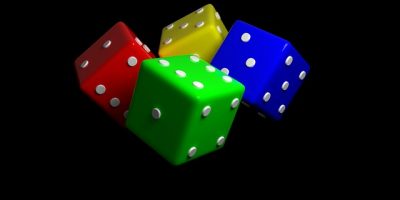Let’s do a quick pop quiz – can you name me a single videogame protagonists who is gay? To qualify, the character needs to be the protagonist for the majority of the main game, and they need to be explicitly gay and not simply given the option to be gay, should the player choose it. I believe that these are some very broad guidelines, so come on, there’s got to be something, right? Go ahead, use Google, I’ll wait. Still coming empty-handed, huh? That’s okay, the only reason why you can’t come up with anything is because there aren’t any. Sure, there’s a TON of games where you can choose your own partner and sexual orientation (“Mass Effect”, “Dragon Age”, “Stardew Valley”, etc). There’s a couple of games where the main character is bisexual (“Life is Strange”, “Phantasmagoria 2”), and there’s a TON of side characters who are gay (Bill from “The Last of Us”, Gay Tony from “GTA IV”, Samantha from “Gone Home”), but surprisingly, not many playable homosexual folk. Sure, there’s Tracer from “Overwatch”, who is on the game’s cover, but considering the fact that “Overwatch” is a multiplayer shooter, players can spend hundreds of hours in it without playing as her once. Or there’s Ellie from “The Last of Us”, who is playable in a single segment of the game and its downloadable content, while otherwise the protagonist is the very heterosexual Joel.

So, why is that? I’m sure that all of us can immediately think of a dozen very explicitly heterosexual main characters from games, but why is being canonically gay reserved for side characters? Well, truth is, it has a lot to do with the demographics. According to studies, only 41% of polled gamers were women, with an average age of 44 (as opposed to the men, whose average age was 35). As such, we can safely assume that a good number of female gamers prefer mobile/casual experiences like “Bejeweld”, “Peggle” or “Angry Birds” rather than the adrenaline-pumping testosterone-filled big-budget console franchises like “Call of Duty” or “Gears of War”. For better or for worse, the primary demographic that most console games are developed for is males 18-35. Of course, there’s always a market aimed at kids (like the LEGO games, for instance), but if you’re going to invest $50 million into a game, then you need to make sure that the primary videogame purchasing demographic will pick up a copy, and that’s young men.
And there lies our problem. I’m not trying to imply that most young men are homophobic – quite the opposite, I’d have to say that, from my own, personal experience, most are totally cool with gay people. But the unique challenge that videogames present is that they allow a person to embody a character, to become them, for a time. A lot of gamers of both genders enjoy the power fantasy that videogames provide them. In real life you can be an accountant or a lawyer, but in videogames you get to be a badass supersoldier that can slaughter anything in sight! And unfortunately, the general preconception among males is that being gay just isn’t particularly manly. We all know the stereotype of manliness: A square-jawed, scruffy-looking stubbled dude in a cool outfit riding a badass motorcycle and shooting a bunch of bad guys in slow motion on his way to get the girl. Women want him, men want to be him! The desirability of this character, the fact that he’s so attractive that he’s able to sleep with any woman he wants, but is too cool to settle down, is a big part of the archetype, despite how thoroughly toxic he actually is. James Bond, the granddaddy of the modern interpretation of the manly hero, has regularly been called out on how outdated and misogynistic he is not just by critics, but also on characters in his own world. And yet he continues to be viewed as a sex symbol, someone who has inspired dozens upon dozens of videogame heroes and who continues to be worshipped and imitated. When you remove the aspect of the womanizer, his flirtatious nature and his uncanny ability to bed any woman he lays his eyes on, even if she’s the enemy, the result is someone who’s perceived as less “manly”, even if everything else is in place.
Of course, that’s merely one side of the coin. A very decent argument can also be made about the fact that, if people can conceivably get invested in playing something that’s so different than their real self, why can’t they get invested in playing a gay character? I mean, in gaming you can be a Nordic warrior, a bow-armed lady in a post-apocalyptic future, an alien, a dog, even a cockroach (not a joke, I own at least two different games where the main character is a cockroach), and yet somehow being gay breaks the immersion? It’s the main character’s preference for the same sex that’s just too much and interrupts the power fantasy, not the fact that one of your guns is a unicorn shooting rainbows out of its butt (again, not a joke)? That idea kind of breaks the argument above in all sorts of ways, but then again, that leaves us with the big question: Why don’t we have more homosexual main characters in games? Is there some sort of anti-gay conspiracy? Are the same evil executives that insist on lootboxes everywhere shutting down the gay protagonists? Unfortunately, there’s not really a decent enough answer today. The only thing we can do is hope that, before too long, at least some of our big, muscular, armed to the teeth bad guys will turn out to be fans of the man.







